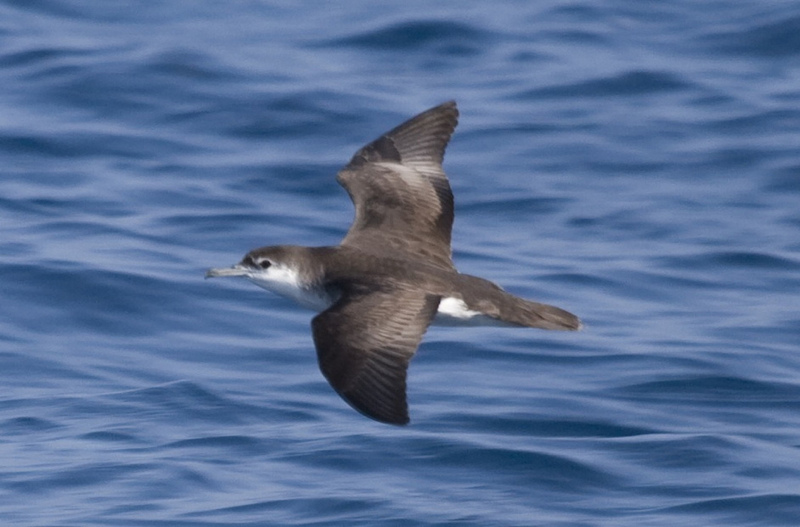|
| 질의: Tropical shearwater | 결과: 1번째/10 | |
Audubon's Shearwater (Puffinus lherminieri) - Wiki
| 제목: | Audubon's Shearwater (Puffinus lherminieri) - Wiki
| |

| 해상도: 1024x674
파일크기: 222853 Bytes
등록시간: 2007:12:12 19:01:26
|
Audubon's Shearwater
From Wikipedia, the free encyclopedia
Order: Procellariiformes
Family: Procellariidae
[Photo] Audubon's Shearwater (Puffinus lherminieri). Source: Flickr (www.flickr.com/photos/brewsterslinnet/1253955358/). Date: August 25, 2007. Author: jforb (www.flickr.com/photos/brewsterslinnet/).
The Audubon's Shearwater, Puffinus lherminieri also known as Tropical Shearwater is a common seabird of the tropics from the family Procellariidae.
Audubon's Shearwater ranges (depending on the taxonomical status, see below) across the Indian Ocean north to the Arabian Sea, throughout the northwest and central Pacific, in the Caribbean, and parts of the eastern Atlantic. It is a species of tropical waters; only the Atlantic populations and Bannerman's Shearwater of the Ogasawara Islands occur farther north.
The adults are not thought to wander or undertake great migrations like other members of the genus Puffinus, although young birds do so before breeding. The species is colonial, nesting in small burrows and crevices in rocks. Both parents share the responsibility of incubating the single egg, taking stints of between 2 to 10 days. The egg takes about 50 days to hatch, and another 70 days to rear to fledging. Once fledged a chick will take 8 years to reach breeding age. Like other shearwaters they are long lived, one bird ringed as an adult was caught again 11 years later.
The Audubon's Shearwater can reach 30 cm. (12 in.) long and weigh up to 170 g, about half the size of the Greater Shearwater. The upperparts and the undersides of the tail and flight feathers are blackish-brown, and the rest of the underparts, cheeks and throat are white. It can be confused with the Manx Shearwater which has white undertail covers.
It is adaptable as regards its preferred marine habitat; it can be found in pelagic, offshore and inshore waters. It feeds in a variety of methods, both diving below the surface to chase prey, pursuit plunging, and surface feeding. It takes small fish, squid and crustaceans. Unlike other birds of the genus, it is not a ship follower. Its twittering calls and mewing are often only heard at night in the breeding colonies.
While some small populations are threatened, the species as a whole (in the present sense, i.e. unsplit) is not considered to be globally threatened.
...
http://en.wikipedia.org/wiki/Audubon's_Shearwater
| The text in this page is based on the copyrighted Wikipedia article shown in above URL. It is used under the GNU Free Documentation License. You may redistribute it, verbatim or modified, providing that you comply with the terms of the GFDL. |
|
^o^
동물그림창고 똑똑전화 누리집
^o^
|
|